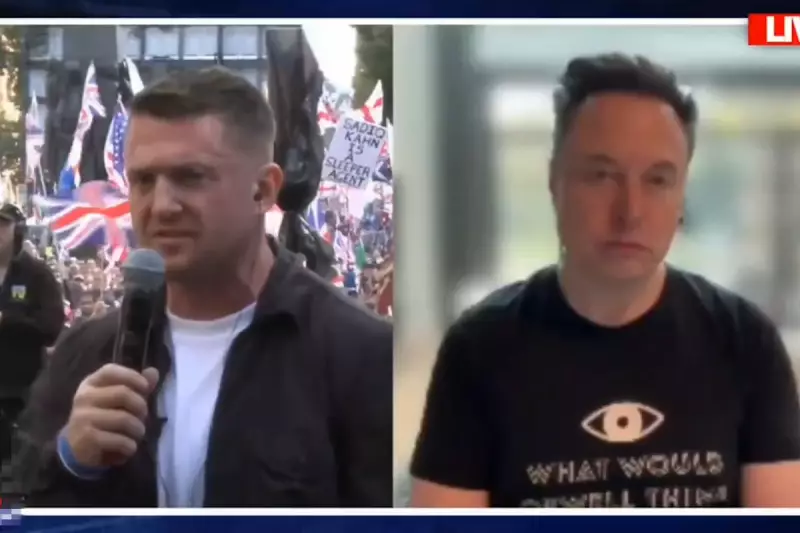
Elon Musk, the tech billionaire and owner of the social media platform X, has ignited a political firestorm by throwing his immense online influence behind the controversial far-right figure Tommy Robinson and a 'United Right' march planned for London.
The move has been met with widespread condemnation from across the political spectrum, with critics accusing Musk of amplifying divisive hatred and interfering in UK affairs.
Musk's Provocative Endorsement on X
Using his personal account, which boasts over 100 million followers, Musk publicly endorsed the demonstration. In a series of posts, he directly engaged with content about Stephen Yaxley-Lennon, the convicted criminal widely known by his pseudonym Tommy Robinson. Musk's posts effectively served as a massive promotional tool for the event, guaranteeing it a global audience it would not have otherwise received.
This intervention is seen as a stark example of Musk's hands-off approach to content moderation on X, a platform he has rebranded from Twitter. His actions stand in direct opposition to the policies of most major social networks, which have historically worked to de-platform and limit the reach of individuals and groups known for spreading extremism.
Who is Tommy Robinson?
For an international audience unfamiliar with UK politics, Musk's endorsement requires context. Tommy Robinson is the founder of the English Defence League (EDL), a far-right, anti-Islam organisation. He has multiple criminal convictions, including for mortgage fraud, assault, and contempt of court.
Robinson is a highly polarising figure in Britain, widely condemned by mainstream politicians and anti-fascist groups for his record of stoking social tensions and religious hatred. His association with any event immediately draws criticism and concerns about public disorder.
A Chorus of Condemnation from the UK
The backlash to Musk's posts was swift and severe. Political figures from all major parties expressed their outrage. The Mayor of London's office emphasised that the city celebrates its diversity and stands united against hatred.
Anti-racism charities and organisations issued strong statements, warning that Musk's actions lend legitimacy to far-right extremism and could embolden individuals to commit acts of violence. The consensus among critics is that a powerful foreign billionaire should not be using his platform to interfere in and inflame the UK's social cohesion.
The Broader Implications for X and Free Speech
This incident raises profound questions about the role and responsibility of tech titans who control vast digital public squares. Musk frames his actions as a defence of free speech. However, his detractors argue there is a significant difference between allowing free speech and actively promoting and endorsing figures known for bigotry.
The controversy underscores the immense power Musk wields and his willingness to use it to champion causes and individuals many find abhorrent. As the owner of X, his personal posts blur the line between individual opinion and platform policy, creating a environment where extremist content can be amplified to millions under the guise of free speech absolutism.





